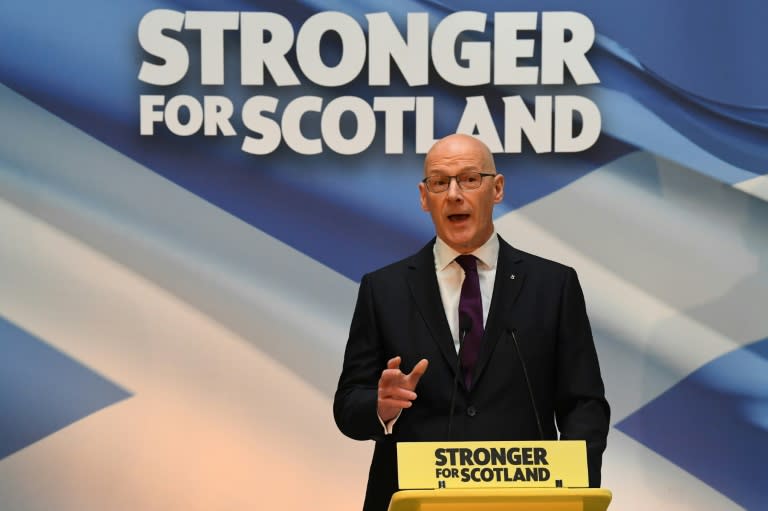Scottish parliament approves John Swinney as new leader

Scotland's parliament approved John Swinney as the country's new leader on Tuesday, a day after he was named leader of the ruling pro-independence Scottish National Party.
Swinney, 60, succeeds Humza Yousaf, who formally resigned from the role earlier in the day, following his announcement last week that he would step down after just over a year in charge.
Swinney won the backing of 64 MPs in the vote that was all but a foregone conclusion, with nearest rival Scottish Conservatives leader Douglas Ross picking up 31.
Yousaf announced last Monday that he was resigning as he faced a confidence vote in the Scottish parliament that he was set to lose, having ditched his junior coalition partners, the Scottish Green Party, in a row over climate policy.
Swinney, an old party hand who led the SNP from 2000 to 2004 when the nationalists were in opposition, was elected unopposed as leader of the SNP on Monday.
He told reporters later that alongside advancing the case for Scottish independence, his key policy idea was the eradication of child poverty.
But he inherits a difficult political legacy, with former SNP leader and ally Nicola Sturgeon embroiled in a party funding scandal and a challenging domestic policy landscape.
The SNP is expected to lose several seats in the UK parliament at Westminster to a resurgent Labour party at a general election due later this year.
Critics have accused the SNP, in power in the devolved parliament in Edinburgh for 17 years, of focusing on pursuing independence at the expense of issues like the cost-of-living crisis and health.
The party has struggled to rebuild momentum for another independence vote since Scotland voted against leaving the UK in a referendum in 2014.
Support for independence, meanwhile, has since fallen to between 41 and 43 percent, according to three opinion polls taken in April.
With the SNP heading a minority government in the 129-seat Scottish parliament, Swinney will need the support of another party to form a governing coalition or to pass legislation.
He has said he will not resurrect the defunct power-sharing deal between the SNP and the Scottish Greens, known as the Bute House Agreement, and will approach issues on a case-by-case basis.
pdh/phz/yad

 Yahoo News
Yahoo News 
